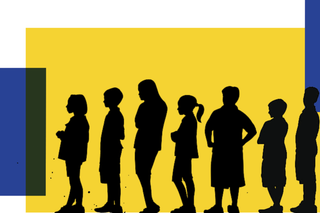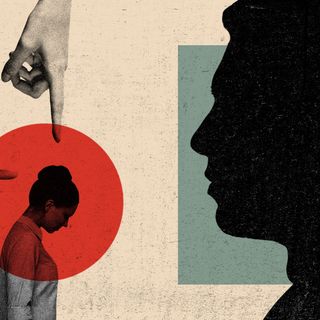
Covid19 Vaccines Are Now Being Tested on Child Volunteers. But Can Kids Really Volunteer?
Given kids’ cognitive and emotional immaturity and legal dependency, it’s questionable whether they can truly consent to medical research.

All around the world, Covid19 vaccines are now being tested on children, some as young as six. Bharat Biotech has been testing its Covaxin shot on children since January. The Oxford-AstraZeneca partnership kicked off the pediatric trial of its Covishield — the other vaccine available in India — last week with nearly 300 “volunteers.”
“It would be helping science and beat the pandemic. And it was my way of saying thank you to the frontline workers who are keeping us healthy,” an American boy, 12, told the New York Times of his decision to participate in the pediatric trial of the Pfizer vaccine.
Except it wasn’t his decision — at least, not his alone.
Children are a legally protected class of people due to their cognitive and emotional immaturity. Until the age of 18, parents and legal guardians are responsible for nearly all decisions related to their children’s welfare. Therefore the question arises — can children truly consent to participation in medical trials? And if not, is it ethical to conduct such tests on them?
No and yes.
It’s complicated. Legally, children are not recognized as having the capability to make their own decisions and many laws exist to keep them from coming to harm through this incapacity. But a critical and obvious difference is that medical trials, while risky, hold great potential to benefit children.
That potential for good should be the guiding force in decisions to involve children in medical testing, according to the “National Ethical Guidelines for Biomedical Research Involving Children,” developed for the first time by the Indian Council of Medical Research in 2017. Medical research on children is critical because children are not simply mini-adults; their physiology is different and therefore treatment doses and effects might vary, the document states. But because children are vulnerable and lack the ability to consent, specific rules must be followed in shaping trials. “There should be benefit to children in general and, in most cases, to the individual child subject,” the guidelines state.
Related on The Swaddle:
When We Finally Have a Covid19 Vaccine, Who Should Get it First? Experts Disagree.
That benefit, in terms of the pandemic, hasn’t been as clear-cut as it has been for adults until recently. For much of the pandemic, the novel coronavirus seemed to affect children much less severely than adults. But the New York Times reported Tuesday a life-threatening Covid19 complication for children — Multisystem Inflammatory Syndrome in Children (MIS-C). It is becoming more common and more severe, in the U.S. In India, at least 2,000 cases of Covid19-related MIS-C have been recorded, though experts say reporting mechanisms are lacking and the true number is likely higher.
Medical experts don’t know why children with Covid19 are more susceptible to increasingly severe bouts of MIS-C. But the statistical breakdown of which kids are getting sickest, in the U.S. at least, suggests a correlation with socioeconomic disadvantages that leave children more exposed to the virus. This class of children, it would seem, would benefit most from a vaccine.
But it’s precisely these children who are most vulnerable within medical trials, especially in India. Medical trial participation, in general, hinges on a concept known as informed consent — in order to consent, participants must fully understand the potential risks (and benefits) they are exposing themselves to. In the case of pediatric trials, informed consent must come from parents or guardians. But in resource-constrained settings with low literacy rates, such as India, informed consent is difficult; “therapeutic misconception” is rampant — that is, the confusion of research with treatment, ICMR guidelines state. “For example, a vulnerable set of patients (such as children from poor socio-economic strata being treated in government hospitals) should not be unduly exposed to research risks, just because they are available and their parents are not fully aware of their rights.” Worryingly, in January, Bharat Biotech’s adult trials of Covaxin came under fire from Indian doctors for violating informed consent norms and promoting therapeutic misconception among economically vulnerable participants.
If benefit and informed consent of parents are the initial ethical hurdles to including children in medical trials, children’s informed assent is the last. While children can’t consent, and parents/guardians must grant permission for children to participate, ethically, children must agree with their parents’ decision in order to be included in the research.
Informed assent is dependent on many complicated factors, including: age and developmental stage (a 15-year-old will likely have a greater cognitive ability to understand and assent than a 6-year-old, and the ICMR guidelines call for age-appropriate explanations of purpose and procedures in assent forms); the complexity of the trial in question (some research is less complicated and/or less risky to child participants than others); and even parenting style (an authoritative style facilitates decision-making abilities in children, while an authoritarian style — which doesn’t allow for children to question parents’ decisions — inhibits it).
Requiring children’s assent also necessitates ensuring their ability to dissent to participation, too. ICMR guidelines stress that children’s assent forms include a section about kids’ ability to refuse. “You can say ‘no’ if you don’t wish to take part in the study. No one will be angry with you. [Or] if you say ‘yes’ and then change your mind later, it will be fine. No one will scold you,” are two example phrases suggested by the ICMR.
Ultimately, a Covid19 vaccine is critical for children — and the only way to arrive at one is to conduct trials with children themselves. But it’s critical for such trials to be conducted in an ethical way. Guidelines exist all over the world for the testing of a Covid19 vaccine on children in a way that allows for them to truly volunteer for a critical cause. If vaccine developers follow them, there’s no better science lesson.
Liesl Goecker is The Swaddle's managing editor.
Related


All You Need to Know About Hypothyroidism
